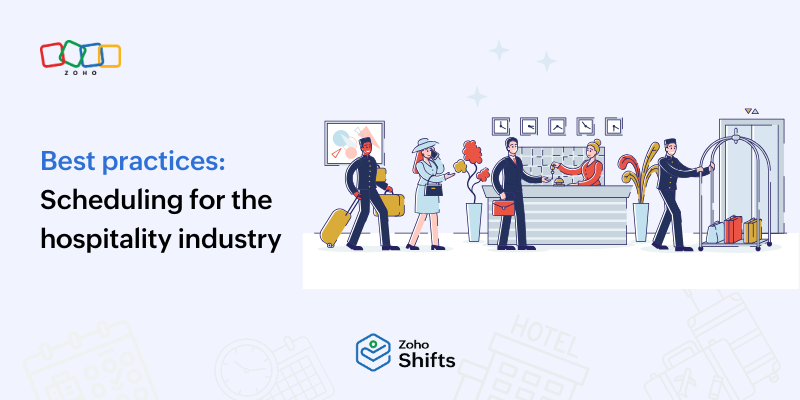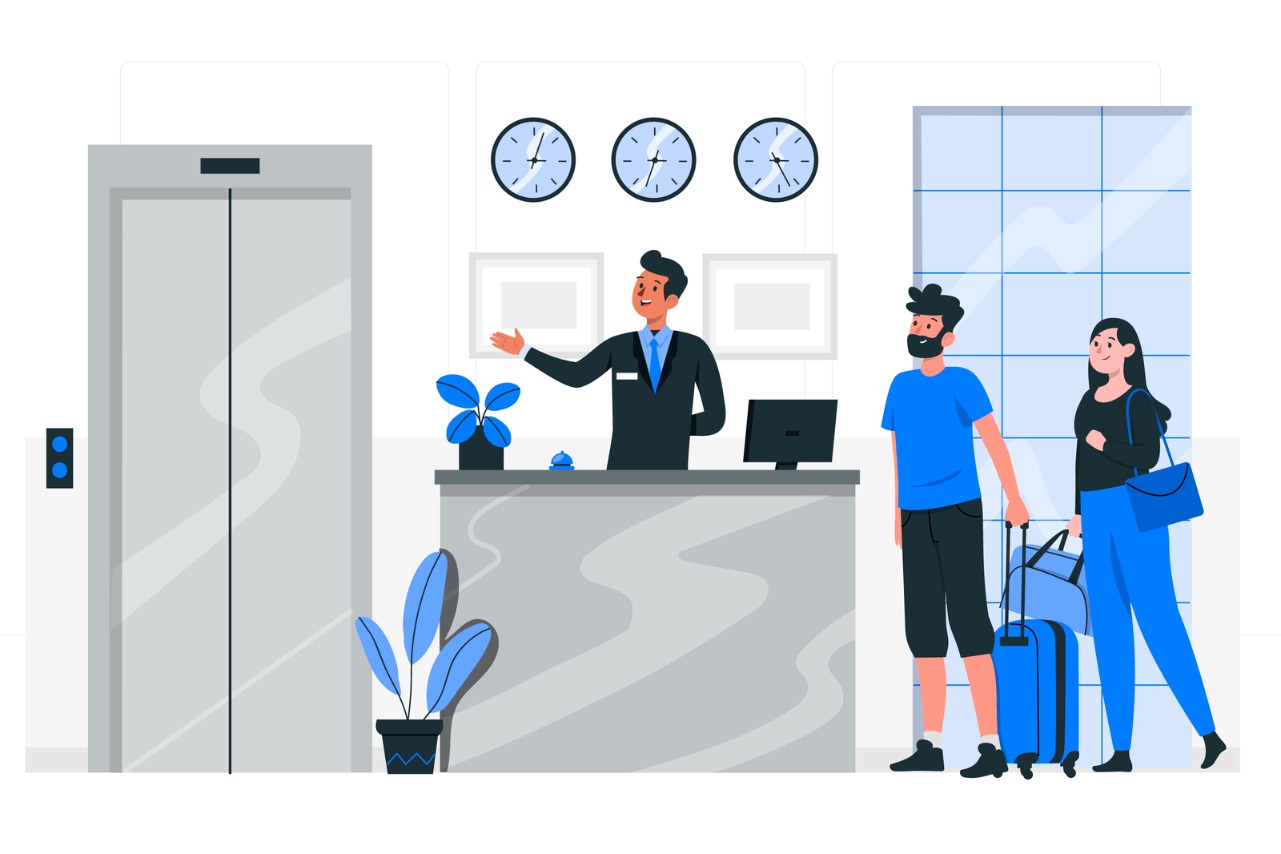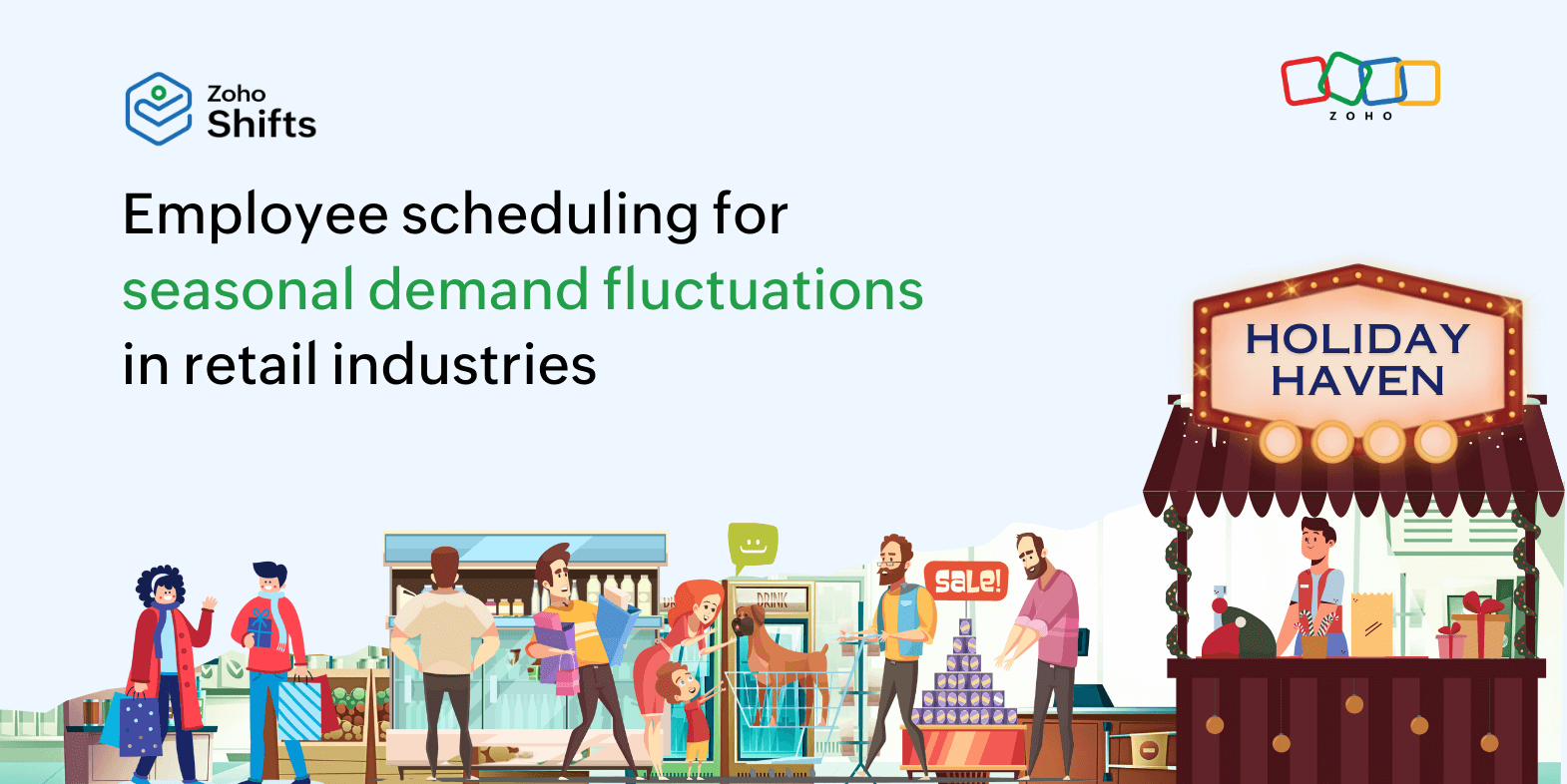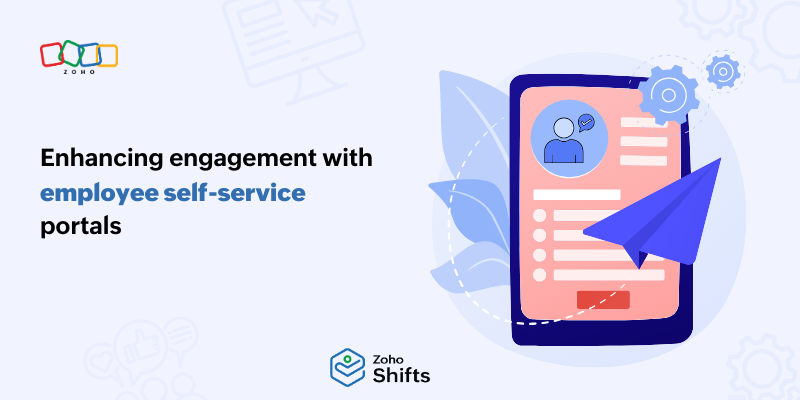- HOME
- Industry Resources
- Best practices: Scheduling for the hospitality industry
Best practices: Scheduling for the hospitality industry
- Last Updated : October 6, 2023
- 1.4K Views
- 4 Min Read

The hospitality industry places a great deal of responsibility on its staff and scheduling system. Having the right personnel on duty is critical for ensuring a positive experience and meeting customer expectations. This requires more than just offering a comfortable stay and tasty meals. It's about taking care of your guests' every need during their stay to provide a seamless level of service.
Consider that 78% of millennials would rather spend money on experiences than things. This should tell you that people are increasingly prioritizing making memorable moments over acquiring material possessions. With customers putting a higher value on experiences, hospitality businesses will need to focus on delivering memorable and personalized moments for their guests.
However, the hospitality industry faces several challenges in meeting these expectations. Delays in attending to customers' needs due to understaffing can be a major source of dissatisfaction. This can lead to negative reviews, bad word-of-mouth, and a tarnished brand image. Customer experience is paramount, and complaints can spread rapidly online. Addressing this challenge is essential for the hospitality industry.
Challenges in staffing hospitality businesses

Hotel managers have a lot on their plate, but planning the work schedule for their staff is one of their most crucial responsibilities. It is important to make sure that every shift is adequately staffed to give the highest level of service to the customers. Even minor scheduling errors can lead to serious consequences that affect the entire guest experience.
Imagine a situation where a hotel is understaffed during peak hours. After a long day of traveling, a customer arrives at your hotel for the first time. Due to being understaffed, the hotel is unable to help the guest check in on time. Instead of resting in their room or enjoying the hotel's amenities, the guest is left waiting at the front desk.
The customer is already tired due to their long journey, and this delay quickly becomes a major source of frustration. With a smartphone in hand, this customer could already be posting negative reviews on the internet, harming the hotel's reputation before they've even checked in. In a situation like this, the gap in service likely affects more than one customer, which means the impact of any staffing shortage gets multiplied as more guests share their experiences online.
Due to the increase in negative reviews, travelers start to look elsewhere, and the demand for bookings decreases significantly. This can result in a vicious cycle of declining guest satisfaction, falling services levels, and long-term damage to the hotel's brand image and revenue.
The primary cause of this service delay was understaffing, a common challenge for hotels. Staffing issues in the hospitality industry are often closely linked to high turnover rates. The frequent turnover of staff members creates a constant need for recruitment and training, making it challenging to maintain a professional workforce.
Hospitality businesses often experience exceptionally high turnover rates. This indicates that companies need to consider staff satisfaction in addition to guest satisfaction. When your staff members constantly face stress due to understaffing, unequal workload distribution, or other scheduling issues, it may lead to burnout and employee turnover. It is important for hospitality business owners and managers to understand these challenges and the best practices to overcome them.
Top 4 best practices for scheduling hospitality workers
1) Set the right goals: Understanding and setting up the right performance objectives for your staff is essential. Without a clear understanding of customer needs, hospitality businesses may struggle to align their staffing strategies with customer needs, resulting in missed opportunities to provide a positive customer experience.
2) Schedule your staff efficiently: In the hospitality industry, efficient scheduling is the key to success. It's vital to ensure that the right number of workers is available during peak hours and fewer resources are committed during slower times. This enables the business to minimize unproductive downtime and optimize labor costs while meeting customer needs.
To learn more, check out our previous blog: Efficient employee scheduling: Essential tips for small businesses.
3) Employ the right scheduling software: The right scheduling software can ensure that every position is covered in a schedule and work is distributed evenly among employees to prevent dissatisfaction and burnout. You should be able to automate and streamline schedules to assign the right number of staff for each role. You can also enable staff members to put in requests to swap shifts or take time off, making it easier for managers to accommodate their team's needs and maintain a satisfied, effective workforce.
The global market for hospitality staff scheduling software is projected to reach $2.15 billion by 2030. This growth clearly shows that companies in the hospitality industry recognize the challenges they face in effective staffing and are focused on optimizing their operations with scheduling software.
4) Build flexibility into schedules: Inconsistent hours, last-minute changes, or a general lack of work-life balance can contribute to dissatisfaction and turnover. It's always good to provide flexibility where you can and give employees the freedom to indicate their availability and preferences for a better work-life balance. This flexibility can help increase staff satisfaction and reduce turnover.
5) Encourage open communication: Encourage open and honest communication between management and staff regarding conflicts, preferences, and requests that affect shift scheduling. Hold regular meetings with employees to share updates and hear their concerns. You may also create channels in the scheduling software for employees to voice their concerns, provide feedback, and suggest improvements. By seeking regular feedback, you can create a good balance between organizational and individual needs.
Find the solution for your staff scheduling challenges
With scheduling software like Zoho Shifts, you can take some of the stress and difficulty out of creating staff schedules. Features such as setting availability, overtime rules, and communication tools help employers streamline the scheduling process to efficiently meet the needs of guests, workers, and management in the hospitality industry.
As technology continues evolving, businesses will need to utilize efficient scheduling applications to ensure operational efficiency, employee satisfaction, and high-quality customer service that supports long-term success.


